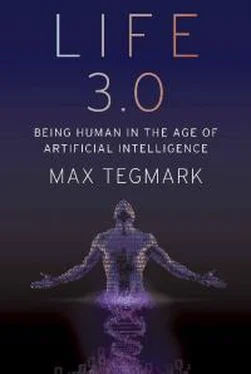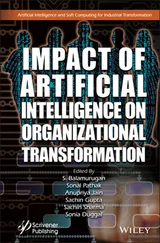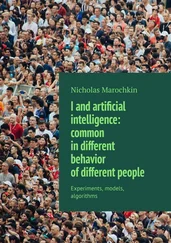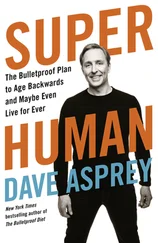As regards goodness, the so-called Golden Rule (that one should treat others as one would like others to treat oneself) appears in most cultures and religions, and is clearly intended to promote the harmonious continuation of human society (and hence our genes) by fostering collaboration and discouraging unproductive strife.7 The same can be said for many of the more specific ethical rules that have been enshrined in legal systems around the world, such as the Confucian emphasis on honesty, and many of the Ten Commandments, including “Thou shalt not kill.” In other words, many ethical principles have commonalities with social emotions such as empathy and compassion: they evolved to engender collaboration, and they affect our behavior through rewards and punishments. If we do something mean and feel bad about it afterward, our emotional punishment is meted out directly by our brain chemistry. If we violate ethical principles, on the other hand, society may punish us in more indirect ways such as through informal shaming by our peers or by penalizing us for breaking a law.
In other words, although humanity today is nowhere near an ethical consensus, there are many basic principles around which there’s broad agreement. This agreement isn’t surprising, because human societies that have survived until the present tend to have ethical principles that were optimized for the same goal: promoting their survival and flourishing. As we look ahead to a future where life has the potential to flourish throughout our cosmos for billions of years, which minimum set of ethical principles might we agree that we want this future to satisfy? This is a conversation we all need to be part of. It’s been fascinating for me to hear and read the ethical views of many thinkers over many years, and the way I see it, most of their preferences can be distilled into four principles:
• Utilitarianism: Positive conscious experiences should be maximized and suffering should be minimized.
• Diversity: A diverse set of positive experiences is better than many repetitions of the same experience, even if the latter has been identified as the most positive experience possible.
• Autonomy: Conscious entities/societies should have the freedom to pursue their own goals unless this conflicts with an overriding principle.
• Legacy: Compatibility with scenarios that most humans today would view as happy, incompatibility with scenarios that essentially all humans today would view as terrible.
Let’s take a moment to unpack and explore these four principles. Traditionally, utilitarianism is taken to mean “the greatest happiness for the greatest number of people,” but I’ve generalized it here to be less anthropocentric, so that it can also include non-human animals, conscious simulated human minds, and other AIs that may exist in the future. I’ve made the definition in terms of experiences rather than people or things, because most thinkers agree that beauty, joy, pleasure and suffering are subjective experiences. This implies that if there’s no experience (as in a dead universe or one populated by zombie-like unconscious machines), there can be no meaning or anything else that’s ethically relevant. If we buy into this utilitarian ethical principle, then it’s crucial that we figure out which intelligent systems are conscious (in the sense of having a subjective experience) and which aren’t; this is the topic of the next chapter.
If this utilitarian principle was the only one we cared about, then we might wish to figure out which is the single most positive experience possible, and then settle our cosmos and re-create this exact same experience (and nothing else) over and over again, as many times as possible in as many galaxies as possible—using simulations if that’s the most efficient way. If you feel that this is too banal a way to spend our cosmic endowment, then I suspect that at least part of what you find lacking in this scenario is diversity. How would you feel if all your meals for the rest of your life were identical? If all movies you ever watched were the same one? If all your friends looked identical and had identical personalities and ideas? Perhaps part of our preference for diversity stems from its having helped humanity survive and flourish, by making us more robust. Perhaps it’s also linked to a preference for intelligence: the growth of intelligence during our 13.8 billion years of cosmic history has transformed boring uniformity into ever more diverse, differentiated and complex structures that process information in ever more elaborate ways.
The autonomy principle underlies many of the freedoms and rights spelled out in the Universal Declaration of Human Rights adopted by the United Nations in 1948 in an attempt to learn lessons from two world wars. This includes freedom of thought, speech and movement, freedom from slavery and torture, the right to life, liberty, security and education and the right to marry, work and own property. If we wish to be less anthropocentric, we can generalize this to the freedom to think, learn, communicate, own property and not be harmed, and the right to do whatever doesn’t infringe on the freedoms of others. The autonomy principle helps with diversity, as long as everyone doesn’t share exactly the same goals. Moreover, this autonomy principle follows from the utility principle if individual entities have positive experiences as goals and try to act in their own best interest: if we were instead to ban an entity from pursuing its goal even though this would cause no harm to anyone else, there would be fewer positive experiences overall. Indeed, this argument for autonomy is precisely the argument that economists use for a free market: it naturally leads to an efficient situation (called “Pareto-optimality” by economists) where nobody can get better off without someone else getting worse off.
The legacy principle basically says that we should have some say about the future since we’re helping create it. The autonomy and legacy principles both embody democratic ideals: the former gives future life forms power over how the cosmic endowment gets used, while the latter gives even today’s humans some power over this.
Although these four principles may sound rather uncontroversial, implementing them in practice is tricky because the devil is in the details. The trouble is reminiscent of the problems with the famous “Three Laws of Robotics” devised by sci-fi legend Isaac Asimov:
1. A robot may not injure a human being or, through inaction, allow a human being to come to harm.
2. A robot must obey the orders given it by human beings except where such orders would conflict with the First Law.
3. A robot must protect its own existence as long as such protection doesn’t conflict with the First or Second Laws.
Although this all sounds good, many of Asimov’s stories show how the laws lead to problematic contradictions in unexpected situations. Now suppose that we replace these laws by merely two, in an attempt to codify the autonomy principle for future life forms:
1. A conscious entity has the freedom to think, learn, communicate, own property and not be harmed or destroyed.
2. A conscious entity has the right to do whatever doesn’t conflict with the first law.
Sounds good, no? But please ponder this for a moment. If animals are conscious, then what are predators supposed to eat? Must all your friends become vegetarians? If some sophisticated future computer programs turn out to be conscious, should it be illegal to terminate them? If there are rules against terminating digital life forms, then need there also be restrictions on creating them to avoid a digital population explosion? There was widespread agreement on the Universal Declaration of Human Rights simply because only humans were asked. As soon as we consider a wider range of conscious entities with varying degrees of capability and power, we face tricky trade-offs between protecting the weak and “might makes right.”
Читать дальше












